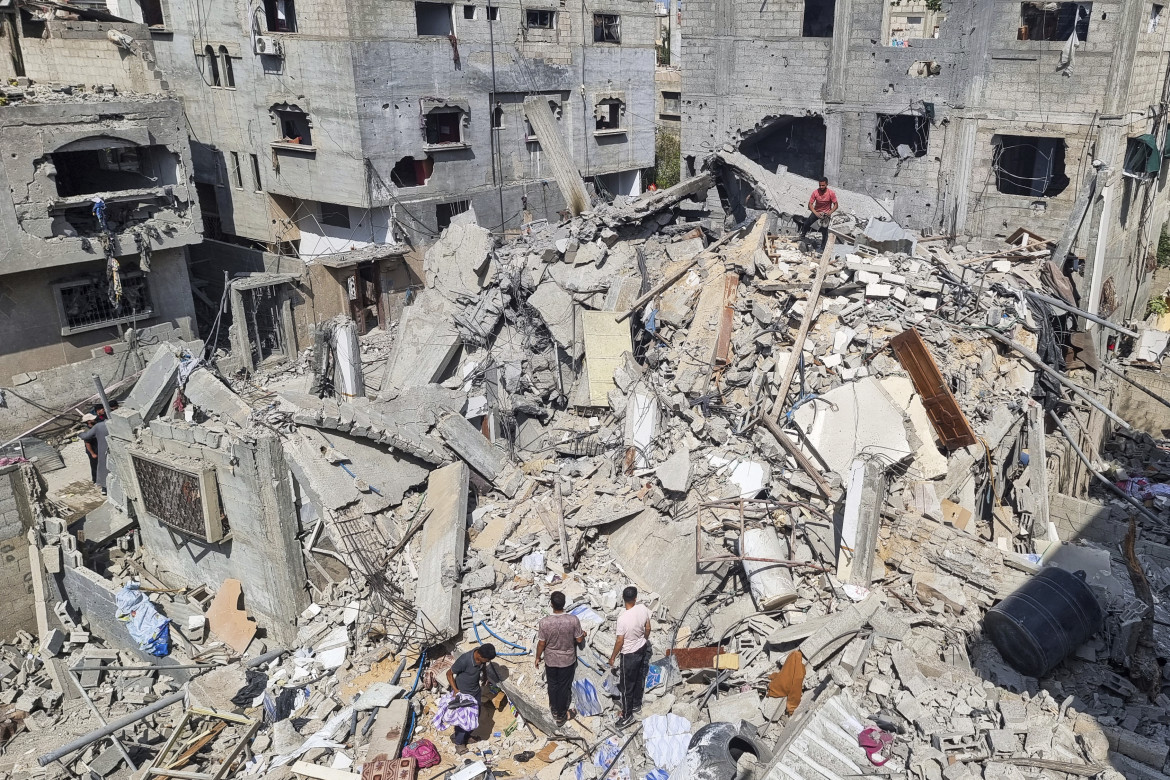Analysis
Hamas is under pressure to accept a deal as Israel pummels Rafah
There is suffocating pressure on the Islamic movement to accept what Secretary of State Blinken on Tuesday, at the World Economic Forum in Riyadh, described as an ‘extremely generous’ deal.

Ghaith Abu Raya lived for only five days. Dhifallah Abu Taha’s life was cut short after only a year. The two babies died on Sunday night along with 25 others in an airstrike that hit the Janeina, Shaboura and Salam neighborhoods of Rafah, where more than a million people are living in fear of an Israeli advance.
Monday night, the local Civil Defense was searching for the missing, buried under the rubble of the homes of two families, Al Khatib and Al Khawaja. According to residents, at least 30 were killed in the latest raids on Rafah, including 12 women and five children. In Nuseirat, 10-year-old Retaj was dug up from the dust and debris of the Othmani family home, wounded but thankfully still alive. The child has been added to the list of the thousands of minors in Gaza who have lost one or both parents.
In Gaza, airstrikes and artillery shelling have only stopped once, for seven days in November, during the only ceasefire between Israel and Hamas. Afterwards, the long streak of bloodshed returned, sparing no one. Nevertheless, the world is beginning to normalize the war. People are under the impression that the death and destruction are a thing of the past. That isn’t the case. And the Israeli offensive in Rafah has already begun, intermittently, from the air at this point, with daily deaths and injuries among Palestinian civilians. At the same time, they’re telling us the Egyptians are “negotiating to prevent” the Rafah invasion by convincing Hamas to release the hostages. On Tuesday, the Islamic movement’s answer to the proposal made in recent days by Egypt was expected. An Israeli delegation also arrived in Cairo.
There is suffocating pressure on the Islamic movement to accept what Secretary of State Blinken on Tuesday, at the World Economic Forum in Riyadh, described as an “extremely generous” deal. At this point, Blinken, set to visit Israel on Wednesday, added that “Hamas is the only thing standing in the way of a deal over a cease-fire being reached.” That’s not what things look like.
Several rumors are circulating about the draft agreement. According to one of them, the deal under discussion includes the release of 33 Israelis kidnapped on October 7. The number of those released will be decisive for deciding the duration of the ceasefire, of up to one year. Hamas is interested in a ceasefire but wants a permanent one. It is also demanding the release of 50 Palestinian prisoners held in Israeli jails for every kidnapped Israeli soldier released and 30 for every Israeli civilian. The exchange would take place in two phases, with a ten-week interval between them. For its part, Israel is demanding that the released Palestinians will have to go into exile abroad. Hamas has always rejected this solution.
According to other rumors, unspecified “initiatives” for the creation of a Palestinian state would be announced during the ceasefire. The Hamas leadership, while saying it is willing to consider the Egyptian proposal, wants clarification on some expressions used by Israel regarding the withdrawal of its forces from Gaza and the permanent ceasefire, which only speak of “intentions” or “readiness” on the Israeli side, without making an actual commitment.
Setting aside the rumors, it seems clear that the “generous offer” to Hamas is meant to bring the hostages home as soon as possible without binding Israel to permanently ceasing its military offensive and finally calling off the attack on Rafah. Videos released in recent days by Hamas, showing three Israeli hostages demanding to be brought home, have put Prime Minister Netanyahu in great difficulty. The images have fueled the fire of protests by the families of the abductees and Israelis who want a compromise with Hamas.
At this point, the Israeli government is experiencing constant chaos and vetoes by all competing factions. The most heated clash is between those who are calling for facilitating the hostage return deal, such as National Union Party leader Benny Gantz, and the far right, which is threatening to bring down the government if the Egyptian proposal is accepted. Ultranationalist minister Bezalel Smotrich said that accepting the deal would be a “humiliating surrender.”
In the background are the moves being made by the United States and the Gulf countries. On Monday, the Saudi monarchy said the new bilateral arrangements with the United States will also have important consequences for Gaza’s future. “Most of the work has already been done. We have the broad outlines of what we think needs to happen on the Palestinian front,” said Saudi Foreign Minister Faisal bin Farhan after meeting with Blinken.
This leaves many questions still unanswered. Is Riyadh preparing to participate in the “future government” of Gaza along with other Gulf monarchies? Or did it secure from the U.S. administration the promise of concrete steps for the establishment of the State of Palestine? Most likely, neither of these things. It seems that on the sidelines of the WEF, Washington and Riyadh discussed, first and foremost, the normalization of relations between the Saudi kingdom and Israel.
Originally published at https://ilmanifesto.it/si-tratta-la-tregua-tra-hamas-e-israele-strage-di-civili-a-rafah on 2024-04-30
